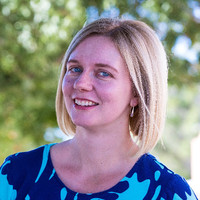It's a terrible vice. I wake up and pretty much immediately scroll through the news and the emails that show who doesn't sleep and which brands want to bug you before you've had your coffee. It was then I read that Sen. Dianne Feinstein had passed away.
Perhaps I shouldn't admit that I'm not a huge fan of reading biographies and don't spend my free time pouring over the past achievements of politicians from other states. The obituaries were interesting, sharing her past accomplishments and, most, staying away from the commentary already being shared online: Feinstein had overstayed her welcome in a position of power.
While my heart goes out to a family's loss, a general sentiment of disdain seemed to have overshadowed her legacy to many of those who watch politics from the outside. We only saw snippets that made us wonder about the efficacy of our government, like her being rolled into work and told to vote yes.
Feinstein's legacy, to me, was also wrapped up in a 2019 interaction with students who came to ask her for bold action on the Green New Deal. One student said to Feinstein that she's "looking at the faces of the people who will be living with these consequences" of climate change. Feinstein told her about her 30-year tenure and her fresh reelection to her seat. After being asked to consider that politicians should listen to the people they represent, Feinstein asked the girl how old she was; she was 16.
Feinstein replied, "Well, you didn't vote for me."
Oof. This brusque interaction is something that millennials had before them for a few decades now until, to the dismay of the older generations, we, too, became visibly older and entrenched in our lives in the same measures of power that they held. In fact, I can see 40 from right around the corner. But still, we watch the older generations cling to power and wonder if that is our fate when we finally get there.
When I was being convinced to get another master's, this time in library science, I was given a few talks by various colleagues that it would be a great time to get into librarianship and that retirement was on the cusp for a generation. I decided against getting that degree (having not yet formally used the degrees I already had). However, when I left my library job, I stayed linked to professional library development groups online. (Librarians are both many times the smartest and snarkiest people in a room and make an online forum thoroughly enjoyable.)
It turned out the retirement wave didn't happen. There was less room at the top, and wave after crashing wave of graduating librarians eager to find work realized that because people at the top didn't retire, they couldn't move up.
Similarly, job seekers of all stripes now joke about seeing entry-level jobs needing 10 years, or more, of experience. To paraphrase Inigo Montoya, I don't think that entry-level means what employers think that it means.
The worry at our age is twofold: Will we need to work until the day before we die, and will our legacies of who we are only be wrapped up in the work that we did? I think not. Our value as humans seems much more nuanced than that, bound up beyond our productivity, and the tricky part is that more of us know that now.
Cassie McClure is a writer, millennial, and unapologetic fan of the Oxford comma. She can be contacted at [email protected]. To find out more about Cassie McClure and read features by other Creators Syndicate writers and cartoonists, visit the Creators Syndicate website at www.creators.com.
Photo credit: Clay Banks at Unsplash






View Comments